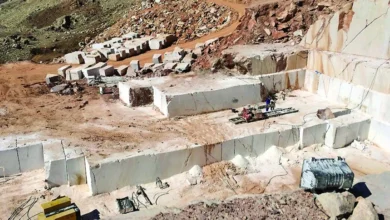
Dubai Jewel
Dubai, the jewel of the Middle East, is known for many things – its stunning architecture, luxurious lifestyle, and economic prosperity. However, one aspect that often goes unnoticed is Dubai’s unique approach to real estate, which is deeply rooted in its rich cultural heritage. In this article, we will explore how Dubai’s cultural facet has shaped its real estate industry and why it stands out from other global cities.
Dubai’s cultural heritage is a tapestry of traditions, customs, and influences from various parts of the world. Its geographical location, at the crossroads of the East and West, has allowed it to absorb diverse cultural elements and create a melting pot of traditions. This cultural diversity is reflected in Dubai’s real estate projects, which showcase a blend of architectural styles from around the globe.
One example of Dubai’s unique approach to real estate is the Palm Jumeirah, an iconic man-made island in the shape of a palm tree. The design of this magnificent project was inspired by the traditional Arabian falaj irrigation system, which dates back thousands of years. The precision and symmetry of the palm tree shape pay homage to Dubai’s agrarian past and its reliance on water management.
Another cultural aspect that permeates Dubai’s real estate is its emphasis on Islamic architecture. The city is home to numerous mosques, and many real estate projects incorporate Islamic architectural motifs such as domes, arches, and intricate geometric patterns. These elements not only add aesthetic beauty to the buildings but also serve as a connection to Dubai’s Islamic heritage and its status as a prominent center of Islamic culture.
Furthermore, Dubai’s real estate industry showcases its cultural facet through the incorporation of traditional craftsmanship. From the intricate woodwork of traditional Arabian doors to the handmade mosaic tiles adorning floors and walls, every detail is meticulously crafted by skilled artisans. These artistic touches not only enhance the overall aesthetic appeal of the properties but also preserve and promote traditional crafts that have been passed down through generations.
Dubai’s cultural approach to real estate extends beyond aesthetics and craftsmanship. The city also prioritizes sustainability and green initiatives. Real estate projects such as The Sustainable City and Dubai Creek Harbour exemplify Dubai’s commitment to environmental conservation. These developments aim to create eco-friendly communities that promote sustainable living through energy-efficient design, waste management systems, and green spaces. By integrating sustainability principles into its real estate projects, Dubai showcases its cultural commitment to preserving the environment for future generations.
It is important to note that Dubai’s cultural facet in real estate is not limited to its architectural aesthetics and sustainability efforts. The city’s real estate industry also contributes to its vibrant cultural scene through the development of cultural districts and artistic hubs. Areas like Alserkal Avenue, Dubai Design District, and Jameel Arts Centre serve as platforms for local and international artists, designers, and creatives to showcase their work and contribute to the city’s cultural tapestry.
In conclusion, Dubai’s unique approach to real estate is deeply rooted in its cultural heritage. From its architectural designs to its emphasis on sustainability and support for the arts, Dubai’s real estate industry exemplifies the city’s commitment to preserving its cultural legacy while embracing modernity. By showcasing this cultural facet, Dubai sets itself apart from other global cities and continues to shape its identity as a cultural and architectural hub in the Middle East and beyond.







Thanks for sharing. I read many of your blog posts, cool, your blog is very good.